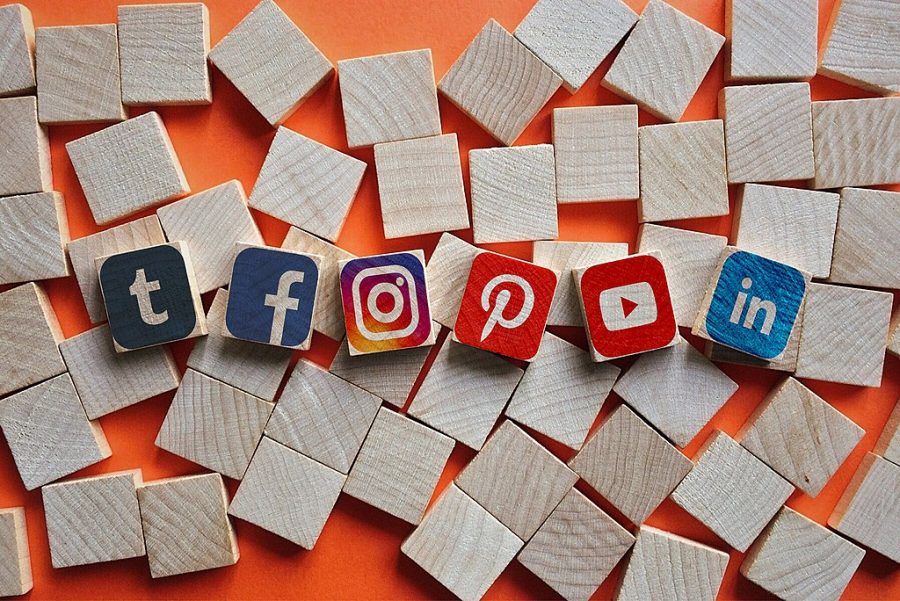Can social media affect your health? Science says yes.
December 6, 2018
In our buzzing technological world, we are occupied with posting pictures on Snapchat, checking our Instagram DMs, and thinking of a clever Twitter hashtag. Social media websites and apps are one of the most popular haunts for today’s era, with teenagers stuck on their phones in roaming halls, distracted classrooms, and enclosed bedrooms. Social media has revolutionized the way we communicate and socialize, but not in a good way.
According to the 2018 Global Digital Report, more than 3 billion people worldwide use social media. Every minute, around half a million tweets, Snapchat photos, and updated platforms are being shared. With social media playing such an integral part in our lives, students, parents, and experts worry that it is promoting anxiety and lowering self-esteem for teenagers.
“But, it is really just a false portrayal of someone’s happiness,”
-Freshman Myka Fromm
“If someone sees a photo of a pretty girl in a bikini, they may think, ‘she’s so skinny and pretty and perfect. Why can’t I be like her?’ But, it is really just a false portrayal of someone’s happiness,” said freshman Myka Fromm. “I personally don’t use social media because I think that it only leads to jealousy and false identification.”
When we compare our lives with others as we scroll through our feed and make judgements about how we measure up, it triggers self-consciousness, envy, and depression. Focusing on our number of followers, likes, and comments results in an endless cycle of isolation and obsession. The more we use social media, the less happy we become.
Studies have found an association between social media use and anxiety, depression, loneliness, poor body image, sleep problems, and suicide. The Child of the New Century study recently revealed that the US suicide rate grew nearly 25% since 1999, and Dr. Nassir Ghaemi, Professor of Psychiatry at Tufts University School of Medicine, added that part of the blame lay with the rise of social media on Tufts Now, an online university news website.
In addition, excessive social media use disrupts sleep. When teens get attached to checking their social media, the artificial light exhibited from phones prevents their bodies from producing the hormone melatonin, which facilitates sleep. The Lancet Psychiatry published a study that found that teenagers who are constantly checking social media tend to have a restless sleep and are likely to suffer from mood problems such as neuroticism and bipolar disorder.
Not only does social media strip valuable sleep, but it also takes away time from your day. Teenagers often find themselves addicted to checking their platform, and forget to focus on their schoolwork, spend time with family, and appreciate the world around them.
Our overall performance in academics and well-being is deeply affected in consequence of social media addiction. As freshman Charles Liang said, “social media is simply a waste of time.”
All of this is not to say that there is no benefit to social media. “Social media does help you keep in touch with friends and family whom you may not otherwise be able to see,” said Fromm.
Social media can strengthen friendships, expose important issues to teens, and help teens express themselves. As teenagers use Instagram, Snapchat, Twitter, and other platforms, they learn the responsibility that comes with broadcasting themselves online. However, using social media as a way to evaluate yourself and kill time is not a good idea.
As a social media user myself, I understand how universal these platforms have become and how difficult it can be to limit your consumption. But I urge you to take a break, and see how it goes.
Interested in responding? Submit your letters using this google form! If you have any questions, please do not hesitate to contact [email protected] or reach out to Rebecca Huang, Shevani Tewari, or Ashley Ye directly!



